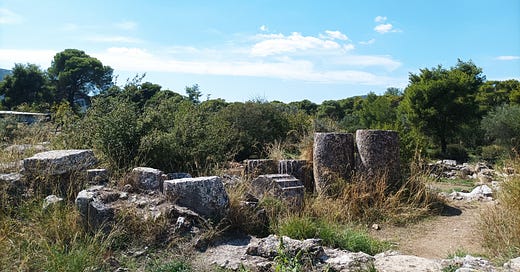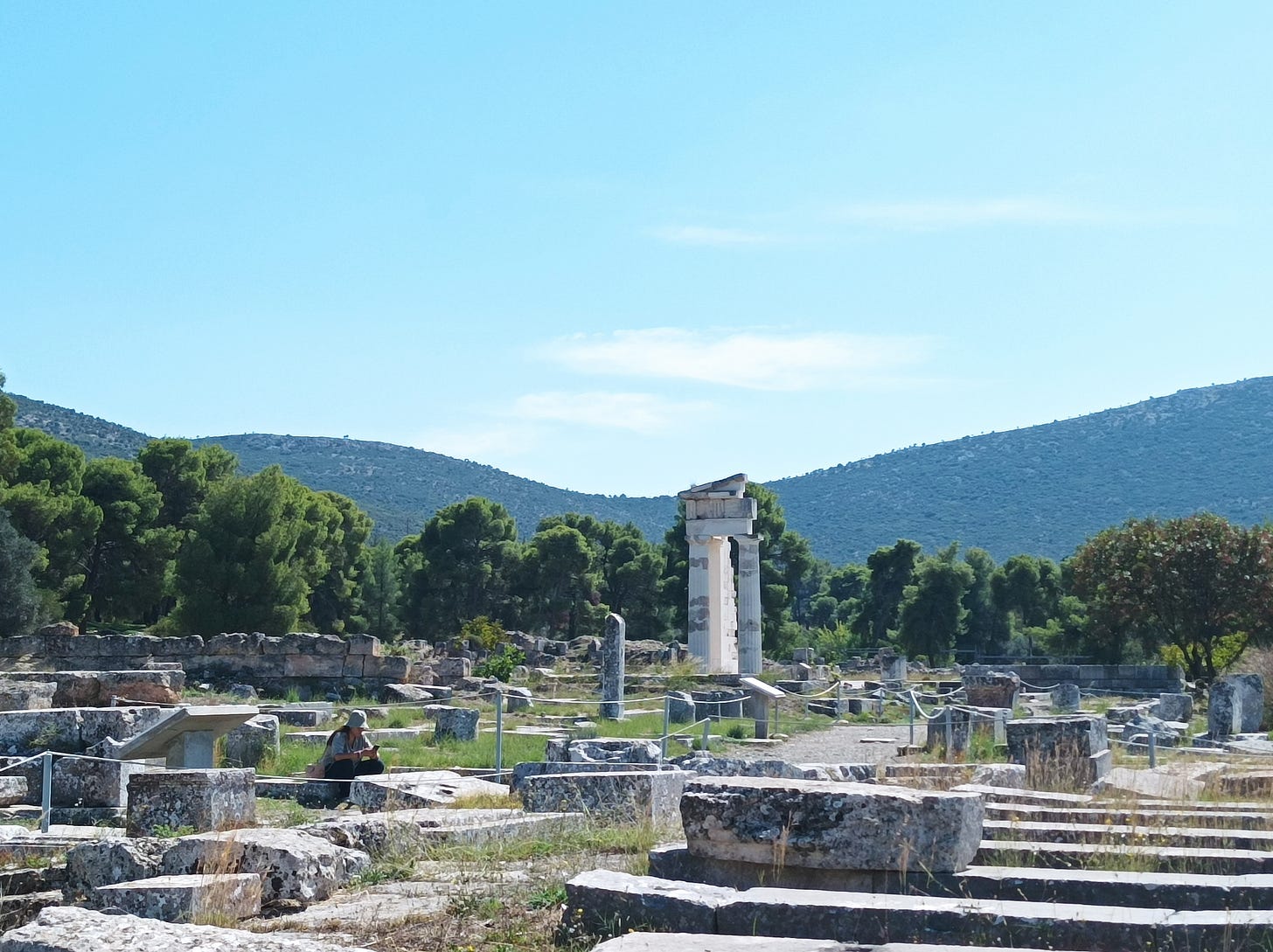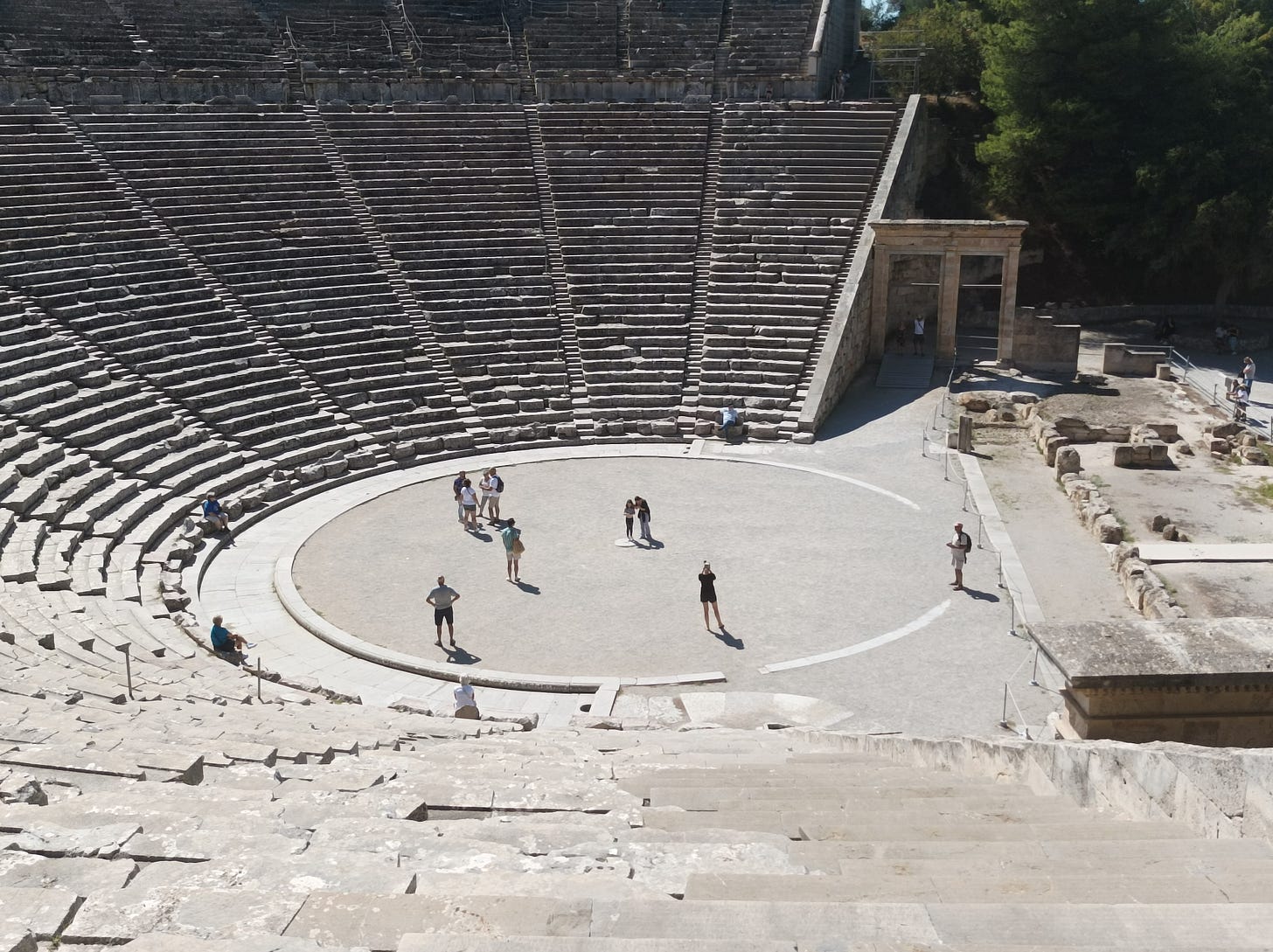Here in Athens, this week, the hot days and balmy evenings still feel like summer. Tonight, we have tickets booked for the late show at the outdoor cinema (we even splashed out on couch seats - payday this week) and I doubt I’ll even need a jacket. It is only in the early hours that you can feel the coming of autumn. There is a chill in the morning air, and a whisper on the breeze of scarves and long boots, mugs of warm tea cupped in two hands, and stepping in out of the cold.
When I wake around 3 a.m. - as I invariably do; I have never been good at sleeping - I reach for the blanket at the foot of my bed and pull it up over the sheet that already covers me. A shiver - not unpleasant - runs through me. It is the same shiver I used to feel when we were driving in the dark when I was a kid, and I pulled that thick tartan blanket over me - the one that lived on the back seat of my dad’s Triumph 2000, and that my brother and I always fought over (silently) on long journeys. It is the shiver my body gives when it is chilly and dark around me, and I build a cocoon for myself against it.
Nature feels the edge of autumn too, of course. Last weekend, driving through the mountains of the northern Peloponnese, the green forests were tinged with an orange hue along the E010 - not all our trees are pines, firs and olives here in Greece. The road there twists and turns, climbing and descending, the sea outside the window one minute, then hundreds of metres below the next.
Only a small part of the forest we pass is burnt, but it is enough to sober all the occupants of our Ford Fiesta. No one sings along to the radio as we pass the blackened stumps, and no one talks about it either. My daughters just look, with sad brown eyes, at the devastation. We can see the path of the blaze; how the flames spread down the mountain and jumped the road and kept on burning. And then we are out of the scarred part of the landscape. Unharmed trees grow tall and majestic, towering over our little blue car as it zips along, and the juxtaposition is jarring. Green forest and fire and burnt stumps are three very different things. It is difficult to imagine one becoming another becoming another.
We are making for the Sanctuary of Asklepios at Epidavros, most famous for its theatre of the incredible acoustics. I am more interested in the sanctuary itself, however; in the methods and ideas of the people who did healing work here. I am impressed by the (once) two-storey respite centre with 160 separate rooms, which was divided into sections that could be isolated should a contagious disease break out. I am also impressed by the tholos (more so than the rest of my family) - there is not much of it left, of course, but I am always amazed that people could construct perfectly circular buildings so long ago. I read on the helpful information boards that sleep was thought to be important in the healing process, that water was an important part of it too. Of course, yes - they knew.
I feel the energy of the place. It is not overwhelmingly sad. A lot of people must have died here, and there must have been a lot of pain and suffering, but there was healing too, and faith - lots of that. Over the ages, all the stories of a place become tangled. Looking (or, rather, sensing) back across so many centuries, it is impossible to discern individual stories in the air above the ruins. I am only left with an overall impression - more human and less divine than the energy of some other sites I have visited.
Naturally, we go the the theatre too. My daughters find acorns on the upper tiers - green ones and brown - fallen on ancient stone instead of soft ground. My youngest (the diva) recites some of Euripides’ Eleni in ancient Greek (prompted by my eldest) and gets applause from some American tourists. My middle daughter only wants to climb to the very top (the very edge) - she doesn’t want anyone looking at her - and to sit on one of the unrestored stones, so her little behind can rest “where an ancient Greek sat”.
What I love most about places like this - the sanctuary, the theatre, the ancient agora of Athens, the Acropolis complex and Delphi, to name a few - is that they are reminders of our individual impermanence, and the enduring mark we leave on this Earth, not just in the physical stones and other debris of our lives, but in the imprint we leave on the collective unconscious, on the soul of the world. It is the same duality that is ever-present in our lives - an undercurrent always whispering (if you are listening), You are insignificant; you are essential; you are ephemeral; you are eternal.
Autumn embodies this truth more than any other season. We can see the physical decay of leaves as they drift down and gather at the base of their parent tree and the dying back of our tomato plants; we see too the night flower dropping her seeds on the earth, the olives ripening from green to purple-black, the pomegranates blushing red on their branches.
Life to death to life.
Liminally yours,
K







